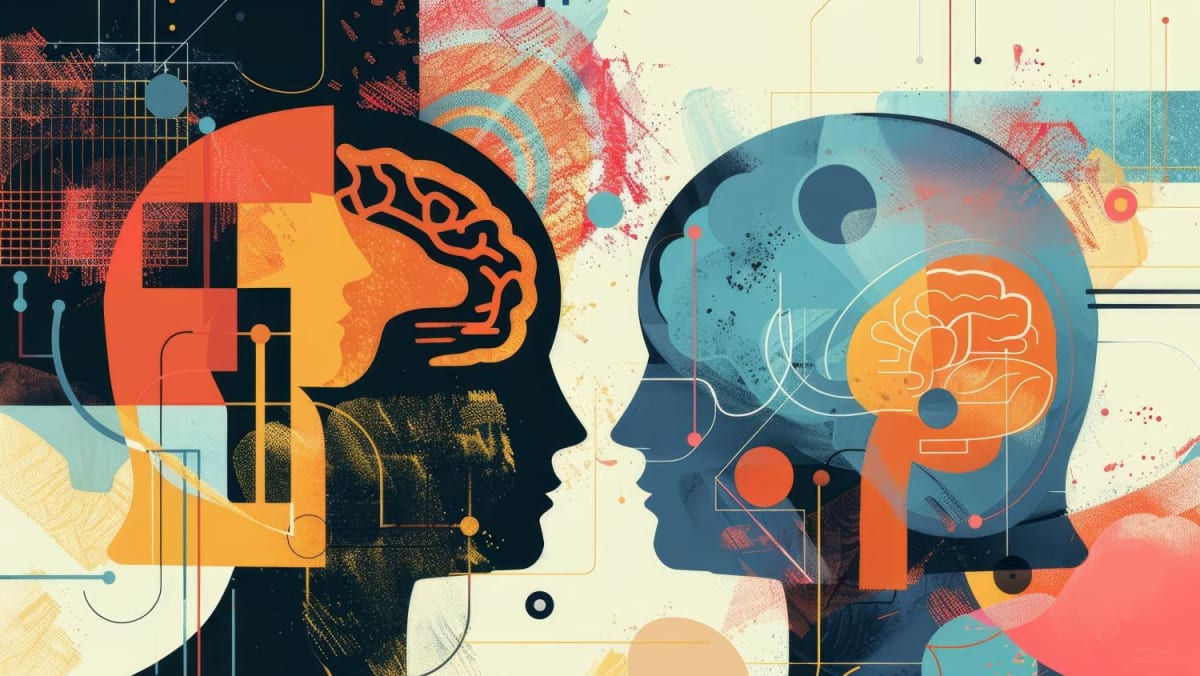SINGAPORE — Over the past decade, the number of people diagnosed with “neurodivergence” has risen, studies around the world have shown, with as many as 8 per cent of adults globally having some form of this condition.
Neurodivergence is a non-medical umbrella term that describes people with variations in their mental functions. Some known conditions that come under this category include attention-deficit hyperactivity disorder (ADHD), autism spectrum disorder (ASD) and dyslexia.
Global studies reflect a rise in prevalence of these conditions, although according to the World Economic Forum, the reasons for this increase are complex and not fully understood.
Some possible factors that have been proposed include better awareness and screening for autism, changes in diagnostic criteria, and environmental or genetic factors.
A 2022 study published in the Journal of the Missouri State Medical Association in the United States found an increase in the prevalence of ADHD in the whole US population, from 6.1 to 10.2 per cent, in a 20-year period from 1997 to 2016.
Another study in 2019, also of the US population, found a 123 per cent increase in ADHD prevalence among adults reported between 2007 and 2016.
Even though ADHD, autism and dyslexia are some of the conditions most frequently classified under neurodivergence, a 2020 study on neurodiversity at work highlighted other associated mental heath conditions such as depression, anxiety and Tourette syndrome.
Some experts also suggest that obsessive-compulsive disorder is neurodivergent because of the hyperactivity in certain brain regions and its cognitive patterns which are similar to the repetitive behaviours seen with autistic individuals.
While overall figures for Singapore are not available, various organisations and clinical psychologists said they have observed an increase in the number of clients seeking help in recent years for various neurodivergent conditions.
In 2018, the Dyslexia Association of Singapore said the number of students in one of its intervention programmes tripled over the preceding decade.
It had 3,115 primary and secondary school children enrolled in its Main Literacy Programme, up from 1,032 in 2007.
According to a report in The Straits Times from 2023, estimates based on data from public hospitals seem to suggest that there has been an increase in the prevalence of ASD over the years, too.
According to a study published in the Singapore Medical Journal in 2021, the number of children identified to have ASD increased from 721 in 2014 to 1,279 in 2019.
Dr Joel Yang, a clinical psychologist at the psychological consultancy Mind What Matters, said his clinic now sees an average of one new referral or enquiry for neurodivergence-related concerns every month, up from once every two months last year.
Dr Praveen Nair, senior consultant at Raven Counselling and Consultancy, has also seen an increase in patients visiting his clinic for neurodivergence-related concerns.
He said: “It is hard to quantify but a rough estimate would be a 20 per cent increase in the last five years.”
For Dr Geraldine Tan, director and principal psychologist at The Therapy Room, she attributes the increase in patients due to more awareness through education and social media.
“There is no firm number but it has been steadily increasing since Covid in different areas of ASD adults, LGBTQ+ and adults with learning disabilities,” she said.
What else do we know about neurodivergence, and how can we help those who have such conditions? TODAY spoke to mental health experts to find out.
What is neurodivergence?
Dr Yang said that neurodivergence broadly refers to people who have different strengths and struggles from people whose brains develop or work more typically.
The term was first developed to define those on the autism spectrum, but has since been applied to people with other neurological or developmental conditions such as attention deficit disorders, or specific learning disabilities like dyslexia, said Dr Yang.
“Seeing this, more recently, neurodivergence has been sometimes used in the context of some mental disorders, such as Obsessive Compulsive Disorder (OCD). This fits within the definition as an individual suffering from OCD may have their brain functioning and mental state significantly affected by a cycle of obsessions and compulsions.”
People suffering from OCD experience the symptoms of obsession, defined as recurrent persistent ideas, thoughts, images or impulses. To reduce anxiety and find relief from these unrelenting obsessions, a person may develop compulsions or behaviours.
How to tell if one has neurodivergence?
Some signs of neurodivergence may include:
- the inability to pay attention
- hypersensitivity to particular smells or sounds
- having very intense interests in very focused topics
Dr Timothy Singham, clinical psychologist at Viriya Psychological Services, said: “Often, these are accompanied by a sense of not fitting in with one’s immediate environment. These experiences often surface from a young age.
“It is very important to note, however, that there are many different factors that could account for these symptoms, and therefore seeking a professional opinion is paramount.”
Dr Yang agrees that neurodivergence can be spotted at a young age, when a child is seen as not behaving or socialising “normally” with peers.
“As these youth grow older, others and society become less forgiving and intolerant of their differences. Many struggle with feelings of loneliness and not fitting in.”
How does neurodivergence affect work and relationships?
Neurodivergence often affects one’s work and relationships greatly, according to Dr Singham.
For instance, one might struggle to cope with the demands of multi-tasking at work, or might find certain workplace environments particularly challenging to work well in.
“There is also an often underestimated impact that neurodivergence can have on relationships,” Dr Singham said.
“Research has shown that those with neurodivergence experience a lower quality of relationships both at work and among family and friends, and this can cause a great amount of psychological distress.”
This could be due to factors such as mismatched expectations, communication difficulties, difficulties in reading, expressing and regulating certain emotions.
Dr Yang added that some neurodivergent people struggle because they do not fit into normal societal systems.
How can employers and family help?
Dr Singham emphasised the importance of being open to listen to the experiences of those who have neurodivergence.
“People with neurodivergence are often misunderstood by people around, so do not underestimate the impact that a listening ear can have,” he said.
“It is also important to listen to their own unique experience, as neurodivergence can manifest in many different ways and no two individuals are exactly the same.”
At the workplace, Dr Singham said that it is important for companies to have policies that enable the flexible provision of specific accommodations for people with neurodivergence.
Apart from policies, companies must embrace a culture of inclusivity and respect for everyone.
Dr Yang said that others can learn to be more patient in general and allow those affected the chance to express themselves more and opportunities to demonstrate their strengths.













